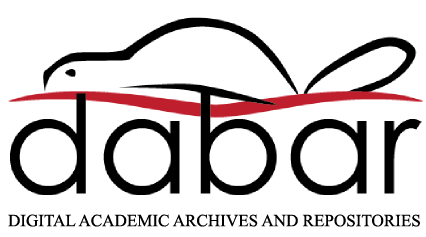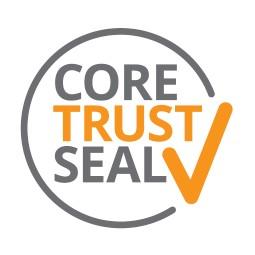CoreTrustSeal (CTS) is an international, non-governmental and non-profit organization that promotes sustainable and reliable data infrastructures and offers data repositories the possibility of certification based on the Core Trustworthy Data Repositories Requirements criteria. This list of criteria reflects the characteristics of reliable repositories, and was created under the Research Data Alliance (RDA) through the merge of two certification procedures that were separately carried out by the World Data System of the International Science Council (WDS) and the Data Seal of Approval (DSA).
Why certify a repository and what types of repositories can be certified?
Through the certification process, the data repository proves its sustainability and reliability, and the strengths and weaknesses of the repository become clearer, which enables its improvement. Certification carried out by an independent organization confirms that the repository, or the institution that supports it, follows good practices, so such a repository becomes more attractive to both researchers and financiers. To researchers who publish their data in the repository, but also to those who use this data, the certificate provides assurance that the data in the repository will be preserved, understandable and usable in the future, which also contributes to preserving the reproducibility of the research on which the data was used. The certificate also gives financiers the assurance that the results of funded research will remain preserved and available in the long term. The importance of CTS certification is recognized among European research infrastructures, e.g. Common Language Resources and Technology Infrastructure (CLARIN) and Consortium of European Social Science Data Archives (CESSDA) expect centres and service providers to undergo the CTS certification process.
Certification is applicable for various types of repositories: domain or thematic repositories, institutional repositories, national repositories (including governmental ones), library, museum and archive repositories, project repositories, and in the future we can also expect certification of tools and services.
Criteria and certification procedure?
Repository certification is based on 16 criteria called Core Trustworthy Data Repositories Requirements . A total of 16 criteria are organized into three groups:
- organizational infrastructure - includes criteria: mission/scope, licenses, continuity plan, confidentiality/ethics, organizational infrastructure, professional support
- digital objects management - includes criteria: data integrity and authenticity, acceptance criteria, documentation of storage procedures, long-term preservation plan, data quality, work processes, data disclosure and identification, data reuse
- technology - includes criteria: technical infrastructure, security.
For each of the criteria, the repository must provide a statement on how it fulfils the criteria and substantiate such statement with links to online documentation. All statements must be written in English, while online documentation does not necessarily have to be in English, but must contain at least a summary translated into English. In the certification process, it is not necessary to disclose confidential information, and if they are part of the evidence, then such evidence can be attached to the application for certification. The candidate for certification for each criteria makes a self-assessment of the level of compliance of the repositories with the criteria, with a score from 0 to 4: 0 - Not applicable, 1 - The repository has not yet considered it, 2 - The repository has a theoretical concept, 3 - The repository is in the implementation phase, 4 - The criteria is fully implemented in the repository. The purpose of these answers is primarily for the applicant to understand whether the repository is ready for certification, while in the evaluation process the fulfilment of a particular criteria will be assessed based on statements for the criteria and supporting evidence. For successful certification, the repository must have levels of compliance with criteria 4 or possibly 3 for some criteria, and a detailed explanation if the level of compliance is 0 for some criteria. Compliance levels 1 and 2 mean that the repository is not ready for certification.
Certificate validity and current number of certified repositories?
The certificate is issued for a period of 3 years, after which the repository must again go through the compliance check procedure according to the current criteria. The CoreTrustSeal committee determines the criteria and rules for certification for a period of 3 years and during that period the rules do not change, and the current version of the criteria is valid for the period from January 2020 to December 2020.
Currently, 82 repositories have a CTS certificate, and in addition, another 72 repositories have some of the certificates that preceded CTS (WDS, DSA), so it is expected that they will try to obtain a CTS certificate after the expiration of existing one. The list of certified repositories, as well as the criteria and application form, are available on the CTS website .
You will have the opportunity to hear more about the certification of the repository in DABAR at the first of two webinars "How to Manage Research Data?", which will be held on May 25, 2020.



